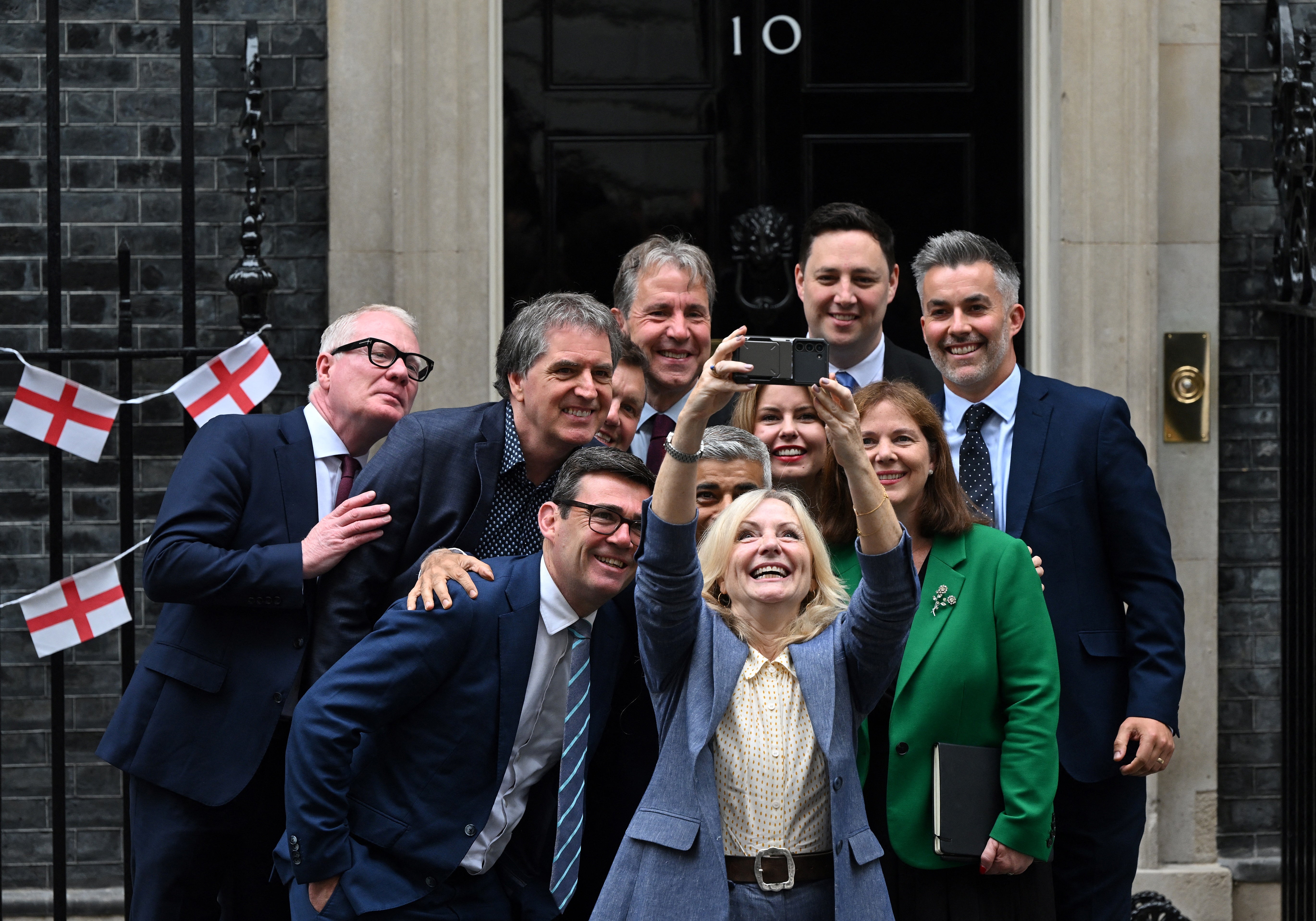Is Starmer’s Council of Regions and Nations a federalist talking shop?
The prime minister is keen to repair terrible relations between Westminster and devolved administrations. But Sean O’Grady looks at how his plan to bring Scotland, Wales and English mayors into the same group will work in practice


In stark contrast to his immediate predecessors, Keir Starmer has made a point of establishing cordial relations with the UK’s devolved administrations and its regional or metro mayors.
The prime minister made it a high priority to swiftly visit all of his counterparts across the UK: John Swinney, first minister of Scotland; Michelle O’Neill and Emma Little-Pengelly, respectively first minister and deputy first minister in the Northern Ireland Executive; and Vaughan Gething, first minister of Wales.
A reception at Downing Street followed for the regional mayors including Tracy Brabin (West Yorkshire), Andy Burnham (Greater Manchester), Sadiq Khan (London) and Ben Houchen (Tees Valley). All 12 metro mayors attended except for Oliver Coppard, the mayor of South Yorkshire, who has Covid.
Starmer wanted to introduce himself and to put this nexus of internal UK relationships on a more formal basis. To this end, he has established a new Council of Regions and Nations in order to allow ministers and mayors to meet regularly. It’s a constitutional innovation that some see as another step toward a more federal UK.
What is the Council of Regions and Nations?
As presently envisaged, it will be chaired by Starmer (no deputies or substitutes) and its members will be the various first ministers and metro mayors. Starmer reportedly stated: “I don’t want to overly formalise it, but I do want a degree of formality so that it’s a meeting that everybody knows is a meeting where business is done, where decisions are properly recorded and actioned.”
What will it do?
This isn’t so clear. It has no statutory basis, and obviously with so many different interests and political parties represented it would be tricky to operate as any kind of institution, even if that were intended. However, to begin, it will be used as a forum to help implement Labour’s manifesto pledge to devolve more powers, especially to the various English mayors. In the words of Angela Rayner: “It’s time to take back control, and this new government is focused on setting that potential free, with a full reset of our relationship with local government. All of this starts with proper, grown-up conversations with our regional mayors, to make changes that help them deliver local economic growth with better housing, education and jobs for local people.”
What’s the problem?
One very obvious one is that great swathes of England are completely absent from this particular top table – for example, Cornwall, Oxford, Cumbria and almost every southern county. Labour wants to extend devolution, but not every area necessarily wants to have a regional or city-region authority. The Council of Regions and Nations is also highly asymmetrical: London gets its representation but not, say, Birmingham, Bristol, Belfast or Glasgow in their own right. An additional complication is that the various entities have different powers and focuses; only Scotland, for example, has the right to vary income tax.
What happened to the Prime Minister and Heads of Devolved Governments Council?
Well, quite. This is supposed to be the principal body for cooperation between Westminster and the devolved nations (though not the regional mayors). It has a low profile and slightly obscure constitutional status, with neither statutory decision-making powers nor any formal rights to arbitrate on matters where the prerogatives of Westminster, Holyrood, Cardiff Bay or Stormont are in conflict.
Where could the new Council of Regions and Nations lead?
It seems obvious that it could be the nucleus of a new senate or upper house of parliament and replace the existing House of Lords. Indeed, Labour’s manifesto hints as much as a long-term intention: “Labour is committed to replacing the House of Lords with an alternative second chamber that is more representative of the regions and nations. Labour will consult on proposals, seeking the input of the British public on how politics can best serve them.”
It’s an intriguing, almost romantic idea recalling the very origins of the first House of Lords and Simon de Montfort’s first parliaments, with representatives from counties, cities and boroughs. Every part of the UK could be present, via different tiers, from Scotland to Rutland. If required to vote, they could be equipped with voting powers roughly equivalent to their populations and status – more akin to the qualified majority voting system in the European Union, rather than the fixed equality of states in the US Senate.
What could go wrong?
As with the previous intergovernmental Joint Ministerial Committee (JMC) set up after devolution in 1998, such bodies only thrive if the UK prime minister is committed to making it work. Boris Johnson so disliked the quasi-federalist nature of the JMC that he never attended, while Liz Truss never had a substantive conversation with any of the devolved leaders. Starmer and Rayner seem enthusiastic, but that may also be because all but one of the metro mayors is Labour, and Labour might soon also control Scotland as well as Wales.
Subscribe to Independent Premium to bookmark this article
Want to bookmark your favourite articles and stories to read or reference later? Start your Independent Premium subscription today.
Join our commenting forum
Join thought-provoking conversations, follow other Independent readers and see their replies
Comments